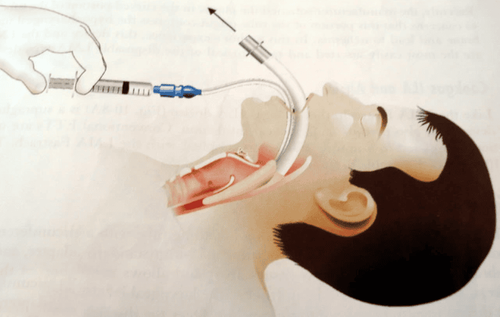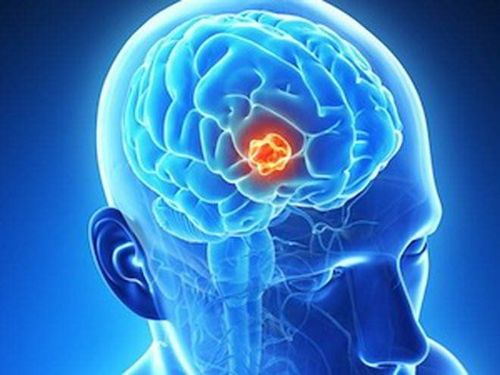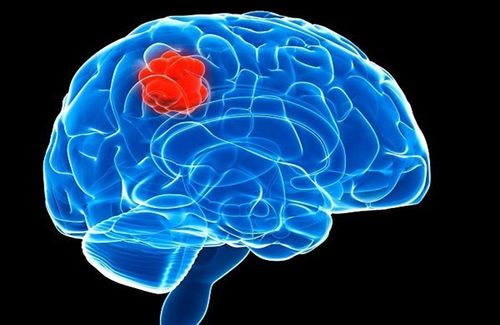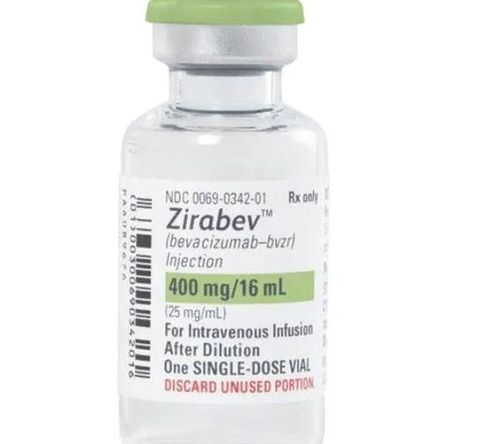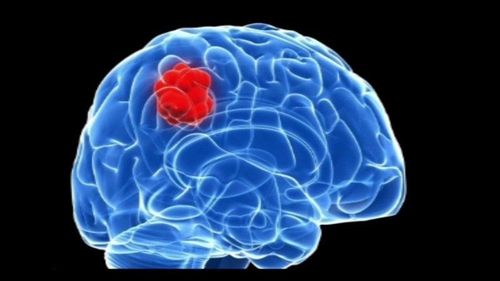This is an automatically translated article.
Adult brain tumors are brain tumors that arise from groups of cells that are out of control. Brain tumors are called primary tumors if they start in the brain. They are considered secondary if they start somewhere else in your body and spread to the brain.1. What is a brain tumor?
A brain tumor is a group of abnormal cells that grow out of control in the brain. Some brain tumors are benign, which means the cells are not cancerous. Others are malignant.Brain tumors are called primary tumors if they start in the brain. They are considered secondary if they start somewhere else in your body and spread to the brain.
2. Types of brain tumors
Primary brain tumors arise from the cells that make up the brain and central nervous system. They are named for the type of cell that first forms. There are more than 100 types of brain tumors. The most common types in adults are:Gliomas. These tumors start in glial cells, which are cells that help keep nerves healthy. They are usually primary cancers. There are several types of gliomas based on the specific cells they target. Astrocytomas are most common in adults. Glioblastoma is the most malignant type of glioma. Meningiomas. These substances form in the meninges, the thin layer of tissue that covers the brain and spinal cord. They are not cancerous, but they can cause problems by pressing on the brain. Schwannomas. These substances damage the protective coating of nerve cells. They are not cancerous, but they often cause hearing loss or balance problems. Pituitary tumor . They form on the pituitary gland, located at the base of the brain. It produces important hormones. These tumors are usually not cancerous and grow slowly.
3. Benign and malignant brain tumors
Benign brain tumors do not thrive and often do not metastasize to surrounding tissues, although they can be serious and even life-threatening. Benign brain tumors often have well-defined borders and are not usually deeply rooted in brain tissue. This makes it easier to surgically remove them if they are in an area of the brain that is safe to operate. But they can recur. Benign tumors are less likely to recur than cancerous tumors.Even a benign brain tumor can be a serious health problem. Brain tumors can damage cells around them by causing inflammation and increasing pressure on nearby tissues, as well as inside the skull. Malignant primary brain tumors are cancers that start in the brain, often grow faster than benign tumors, and quickly invade surrounding tissues. Although brain cancer rarely spreads to other organs, it can spread to other parts of the brain and central nervous system.
Secondary brain tumors are cancerous. They come from cancer that started somewhere else in your body and metastasized, or metastasized, to the brain. About 1 in 4 people with cancer develop a secondary brain tumor.
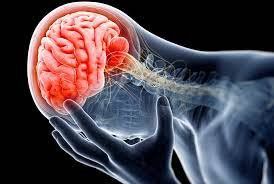
U não ở người lớn là khối u não xuất phát từ nhóm tế bào nằm ngoài kiểm soát của cơ thể
4. Brain Tumor Symptoms
The symptoms of a brain tumor vary by tumor type and location. Because different areas of the brain control different functions of the body, where the tumor is located will affect the symptoms you get.Some tumors have no symptoms until they are large and then cause a rapid, severe decline in health. Other tumors may have slow-growing symptoms.
Common symptoms include:
Headache, which may not be relieved with conventional headache remedies. You may notice that you get them more often or that they are worse than usual. Seizures, especially in someone with no history of seizures Changes in voice or hearing Changes in vision Balance problems Problems with walking Numbness or tingling in hands or feet Problems with memory Personality changes Inability to concentrate Weakness in one part of the body Morning vomiting These symptoms can be the result of many conditions. Don't assume you have a brain tumor just because you have some symptoms. Check with your doctor.
Most of the time, doctors cannot tell what causes a brain tumor. There are only a few known risk factors for brain tumors in adults.
Exposure to radiation. Children who receive radiation to the head have a higher risk of developing brain tumors as adults. Family history. Some brain tumors are associated with rare genetic conditions such as neurofibromatosis or Li-Fraumeni syndrome. Age. People between the ages of 65 and 79 are the population most likely to be diagnosed with a brain tumor. No history of chickenpox. One study found that people who've had chickenpox are less likely to develop gliomas.
5. Brain Tumor Diagnosis
To diagnose a brain tumor, your doctor will start by asking questions about your symptoms, overall health, and family health history. They will then do a physical exam, including a neurological exam. If there is reason to suspect a brain tumor, your doctor may order one or more of the following tests:Imaging studies such as a CT or MRI scan to see detailed pictures of the brain
Angiogram or MRA, medication staining and X-rays of the blood vessels in the brain to look for signs of a tumor or abnormal blood vessels
Your doctor may also order a biopsy to see if the tumor is cancerous. They will remove a tissue sample from the brain. They can do it while surgically removing the tumor. The doctor may insert a needle through a small hole drilled into the skull. They will send the sample to a lab for testing.
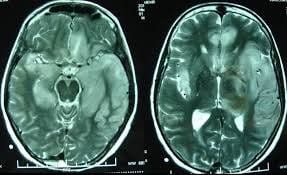
Chấn đoán u não ở người lớn bằng cách chụp CT hoặc MRI
6. Brain Tumor Treatment
Your doctor will consider several things to decide how to treat a brain tumor, including:The location of the tumor The size of the tumor The type of tumor Whether the tumor has spread Overall health Potential complications hidden Surgery to remove the tumor is usually the first choice when a brain tumor has been diagnosed. But some tumors cannot be surgically removed due to their location in the brain. In those cases, chemotherapy and radiation therapy may be options to destroy and shrink the tumor.
Sometimes you will have chemotherapy or radiation after surgery to kill any remaining cancer cells. Doctors can treat tumors deep in the brain or hard-to-reach areas with gamma knife therapy, a highly focused form of radiation therapy.
Because cancer treatment can damage healthy tissue, you should talk to your doctor about the possible long-term effects of any treatments being used. They can explain the risk and the possibility of losing certain abilities. Your doctor can also explain the importance of planning for rehabilitation after treatment. Rehabilitation may include working with a number of different therapists, such as:
Physical therapists to regain strength and balance Speech therapists for help with talking, expressing thoughts or swallowing An occupational therapist to help manage daily activities such as using the bathroom, bathing, and dressing When some of the warning signs of a brain tumor above or any of the If there are any abnormal signs of the body, the patient needs to go to medical facilities for doctors to diagnose the disease as soon as possible. Vinmec International General Hospital is the leading effective treatment center for brain tumors in particular and neurological diseases in general.
With fully equipped with modern equipment, the most advanced machines today such as: G.E 3.0 CT scanner (MRI), CT SCAN Toshiba 640 slices, cerebral angiogram, MRA and CTA... Doctors at Vinmec can easily detect, diagnose, and plan treatment thanks to the clear and detailed images obtained. Not only brain tumors, but also effectively applied to other brain and spine diseases such as: brain degeneration, traumatic brain injury, cerebrovascular disease, cerebral aneurysm... Being examined and treated by a team of qualified and experienced medical professionals. Patients are treated and recovered in modern rooms, fully equipped with international standards, helping patients feel comfortable, providing maximum support for the treatment process.
Please dial HOTLINE for more information or register for an appointment HERE. Download MyVinmec app to make appointments faster and to manage your bookings easily.
Reference source: webmd.com



